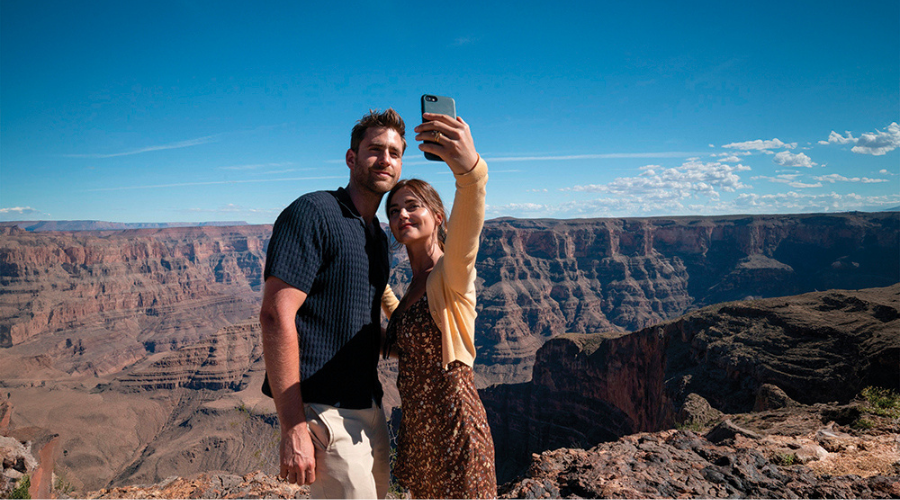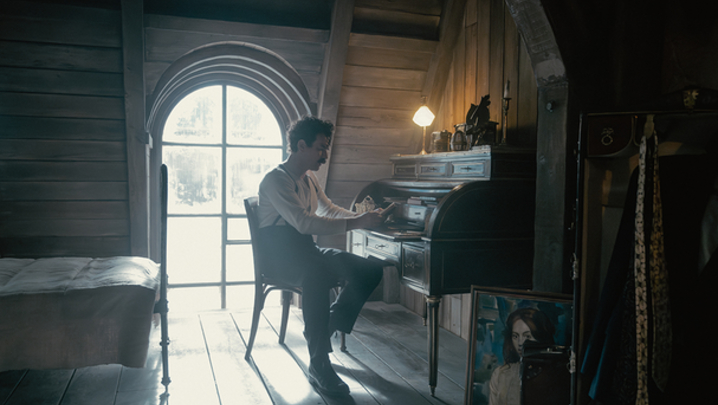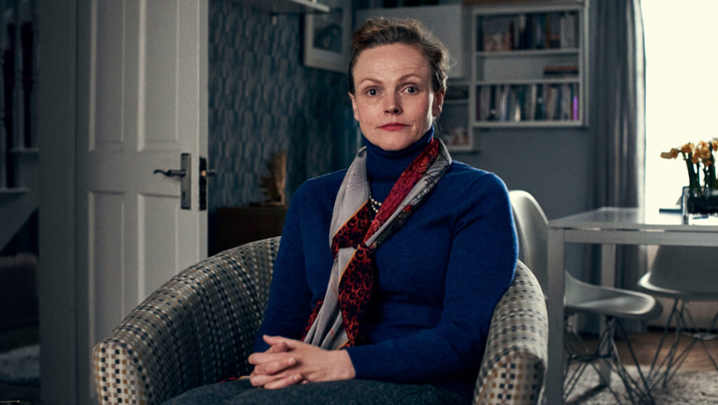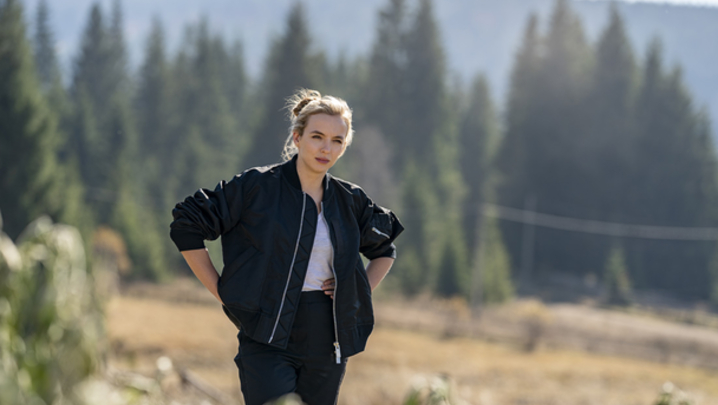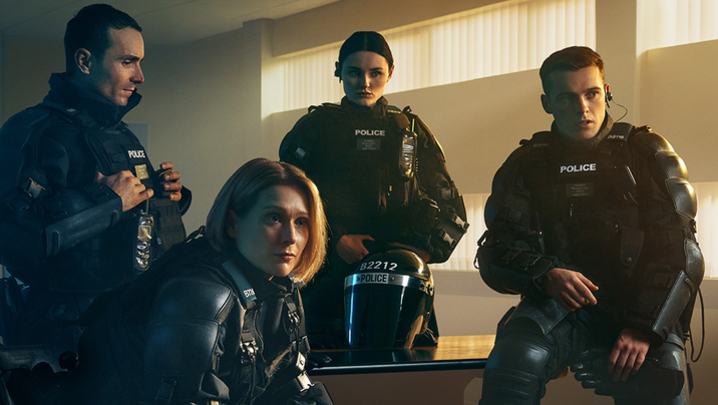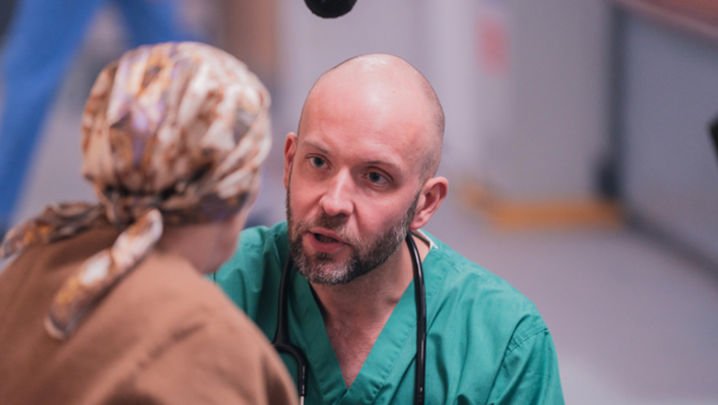Zoë Ellen Bryant works at Carbon Logic, and has chosen and cleared music for some of TV’s biggest dramas, such as Wilderness, A Gentleman in Moscow and I Hate Suzie Too.
The fun part is playing music detective and creating playlists – but there’s also the labyrinthine business of negotiating and securing the rights to use the tracks.
What does the job involve?
A lot of things, which is why it is so interesting. It’s a balance of the creative – loving and exploring music and putting it to pictures – and the nitty-gritty business of discovering who owns the rights to a piece of music, negotiating fees and getting the music cleared, often to tight deadlines.
It’s not all about creating playlists, which is what a lot of people seem to think. It’s collaboration with production, research, detective work, copyright law, negotiation, music budget and schedule management, and a huge amount of paperwork, too. We also work closely with composers and music editors.
How musical do you have to be?
You have to love and emotionally connect to music, and have a naturally good ear, but you don’t need to be academically musical.
I didn’t study music, although I did grow up with a music teacher mum, learning piano, flute and guitar. I was encouraged to listen to classical music as well as the Beatles and Joni Mitchell, and – via my dad – more obscure artists such as the Bonzo Dog Doo-Dah Band, Iris DeMent and David “Honeyboy” Edwards. An open music taste is a prerequisite.
On certain shows, it would help to be academically musical but, personally, I enjoy the challenge of having to learn on the job and getting stuck in to a specific musical world, whatever it is. For example, Paramount+’s forthcoming A Gentleman in Moscow is set in a fancy hotel in 1920s-1950s Moscow, so I’ve been researching period-appropriate pieces for in-vision pianists, string quartets and jazz trios. Oh, and Russian folk songs for a balalaika ensemble!

Is it difficult to match music to images?
When it comes down to a specific scene, a piece of music needs to work on multiple levels. The mood/instrumentation has to feel right, the tempo has to work with the visuals, and the sentiment and lyrics are also important. The music should ideally add to what’s happening on screen, rather than just sit alongside.
So, yes, it can be a long and frustrating process. Or, you can stumble on the perfect track immediately (and then perhaps not be able to clear it!).
Presumably, older music is out of copyright and therefore free to use?
Not necessarily. It’s actually fairly complicated, as there are different rules for the publishing and master recording sides, and laws differ between countries, too.
This job has taught me a huge amount about copyright and music law and, as a company, we’re super thorough when it comes to considering “public domain” music. There are funny anomalies and exclusions, and we don’t want anything slipping through the net.
What was your route into the job?
I studied illustration at Falmouth College of Arts, but have always loved music more than anything else.
As a teenager, I was obsessed with the soundtracks to Baz Luhrmann’s Romeo + Juliet and Alfonso Cuarón’s Great Expectations, and loved the idea of picking songs for films, but it took me years to figure out there was such a thing as “music supervision”. I was working at a cinema at the time, and the owner knew someone who pitched music to music supervisors.
So I ended up working with her, which was a good insight into the industry, but I wanted to be the person getting pitched to. So, after a year, I sent my CV to everyone music supervision-related in London that I could find and Pete Saville (at Shoreditch-based Carbon Logic) offered me a trial day. I’m still here eight years later.
What was the first programme you worked on?
Adventure-comedy Hooten & the Lady for Sky. Each episode was set in a different country, which was a lot of fun.
You recently worked on Amazon Prime thriller Wilderness, starring Jenna Coleman…
I did, alongside writer Marnie Dickens, who had a clear idea of the music she wanted right from script stage. The result was a killer soundtrack of assertive female alt rock, pop and rap: Ashnikko, Santigold, Self Esteem, St Vincent, Taylor Swift and Yeah Yeah Yeahs, to name but a few. And a score by Morgan Kibby.
Are some tracks too expensive to use?
There are certain artists we know to avoid, generally, unless we have a healthy music licensing budget. There are also times when our idea of what a song might cost is worlds apart from what a rights-holder is expecting. If more budget isn’t possible, we find alternatives.
Presumably, rights-holders are also concerned about the context in which their music is used?
Yes, and for this reason we’re always upfront about context and scene descriptions in our initial requests.
As an example, Paramount+’s Sexy Beast has several dark and violent scenes, so we had to be clear about what the music would be accompanying.
Of course, our aim is to get approvals in place, but we’ve had denials for all sorts of reasons, and that is a writer’s or artist’s prerogative.
How do you keep up with new music?
I’m not quite as “on it” as I used to be when I did radio shows, but I still go to a lot of gigs, and listen to radio (BBC Radio 6 Music, Soho Radio, NTS). Working above the music venue Village Underground also helps!
What piece of music are you most proud of securing for a programme?
Managing to clear Taylor Swift’s re-record of Look What You Made Me Do for Wilderness was quite a feat (and certainly not all my own work!). Another that springs to mind is Dario G’s Sunchyme in the finale of Derry Girls, which was nominated for a best sync award.
What are the best and worst parts of the job?
The best: finding a track that really works well with a scene, and managing to clear it, or tracking down an elusive publishing share after months of detective work. The worst: not having enough time for creative endeavour and/or clearance, or the stress of a denial on a track that a production loves (although we are always prepared with alternatives).
What makes a good music supervisor?
A love and knowledge of music comes first, but you also need to be nice to work with, super organised and proactive, a problem solver, researcher and detective. You must do the absolute best job you can for the production you’re working on, while also appreciating the value of music when negotiating fees with rights-holders. Attention to detail is also crucial to scrutinise music licences.
What advice would you give to a would-be music supervisor?
Love and learn about as much music as you can (including contemporary film and TV composers), understand the two rights-holder sides, watch loads of good shows and films and have a go at editing music to picture.
What would be your dream show or film to work on?
An A24 horror movie is definitely on my wish list – the next Rose Glass film maybe? I’d also love to work on more comedy; something directed by Tom Kingsley or Will Sharpe would be pretty cool. I’d also love the opportunity to collaborate closely with a writer or director and really focus in on the musical vision.
Zoë Ellen Bryant was interviewed by Matthew Bell.

